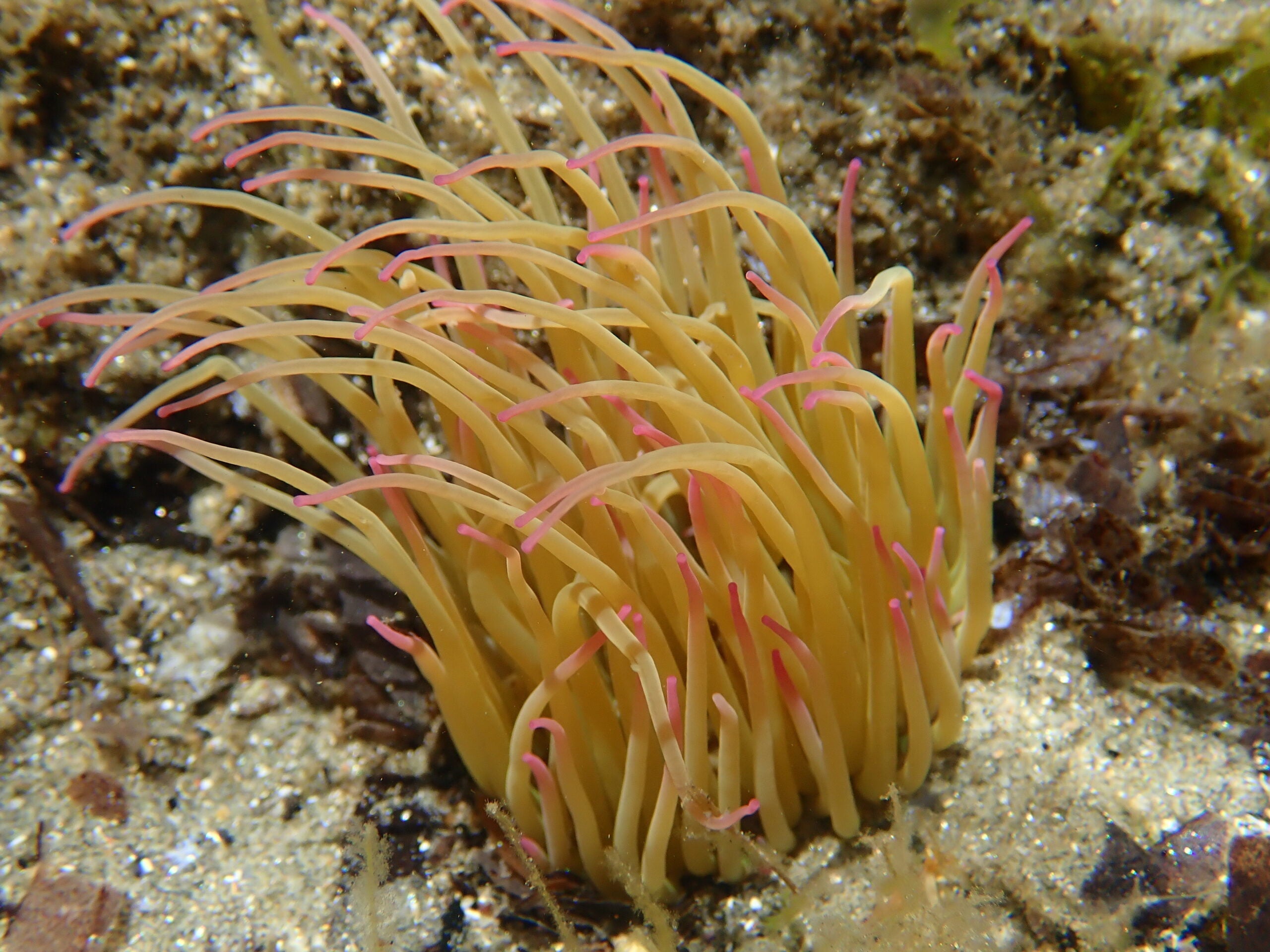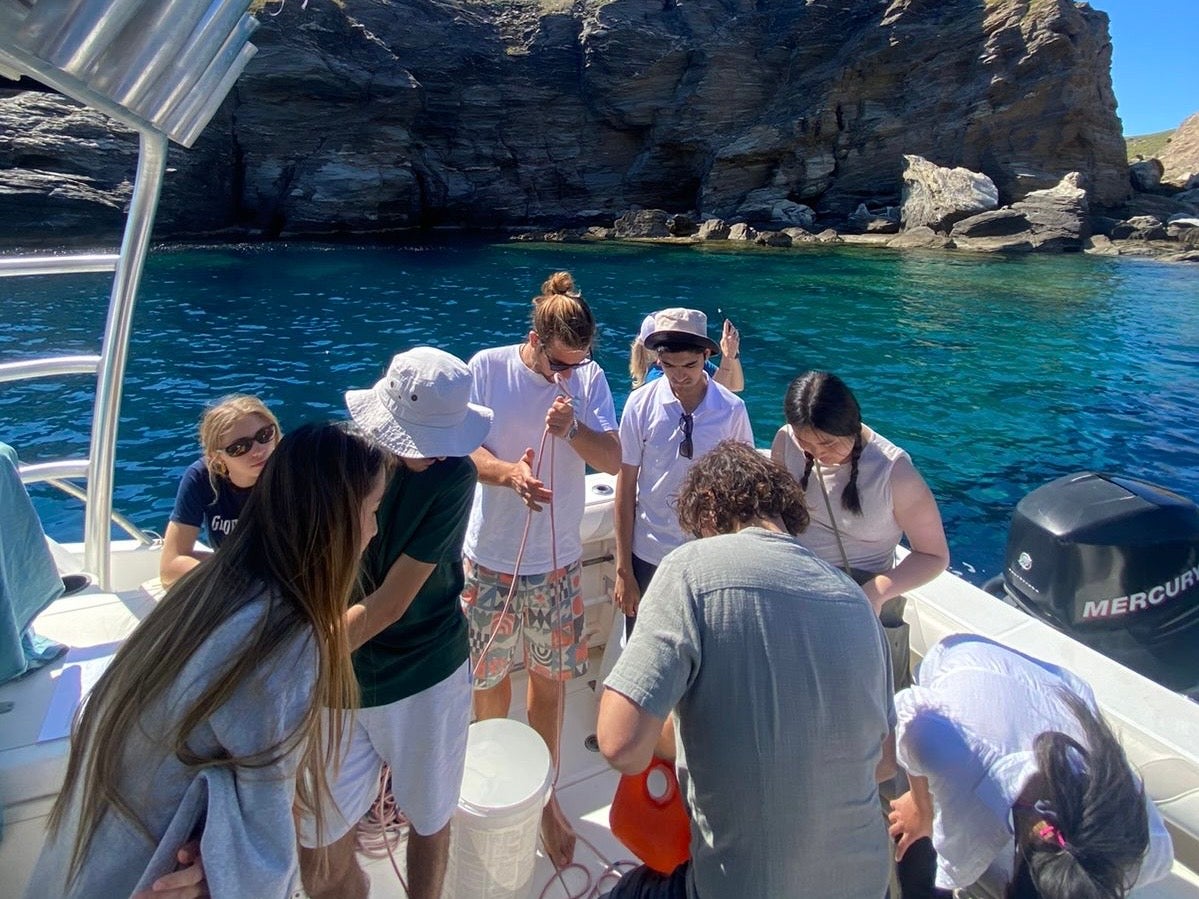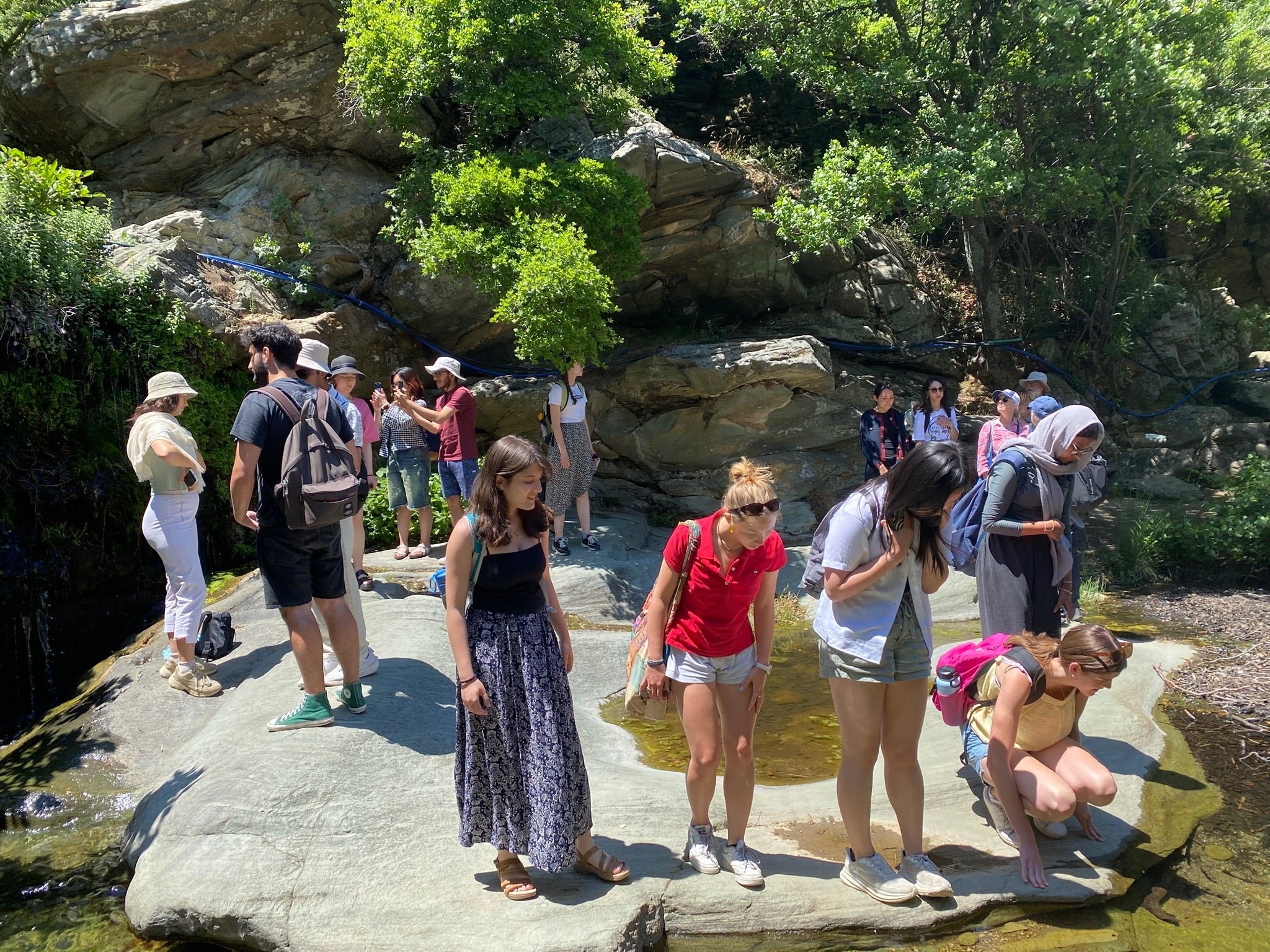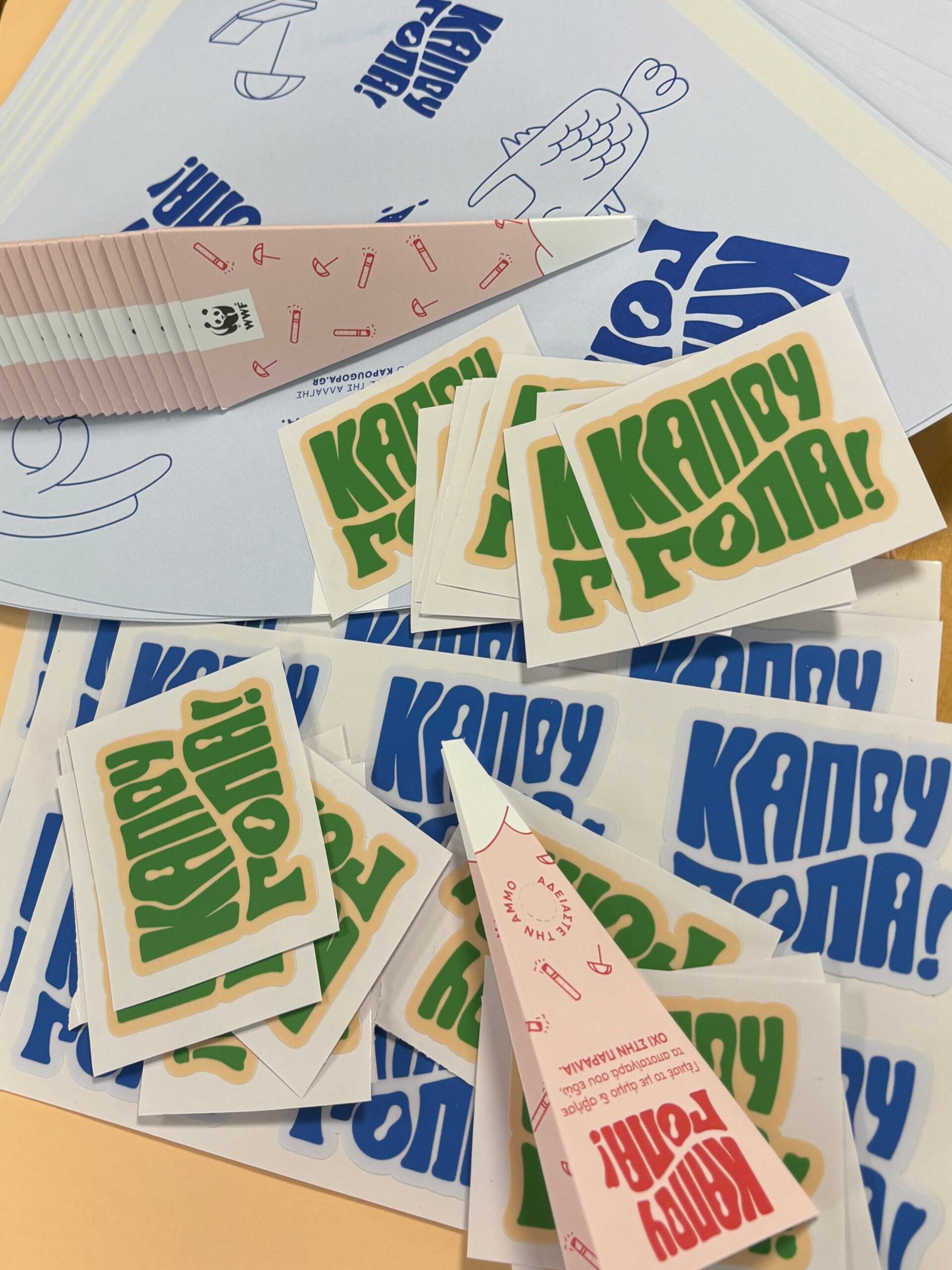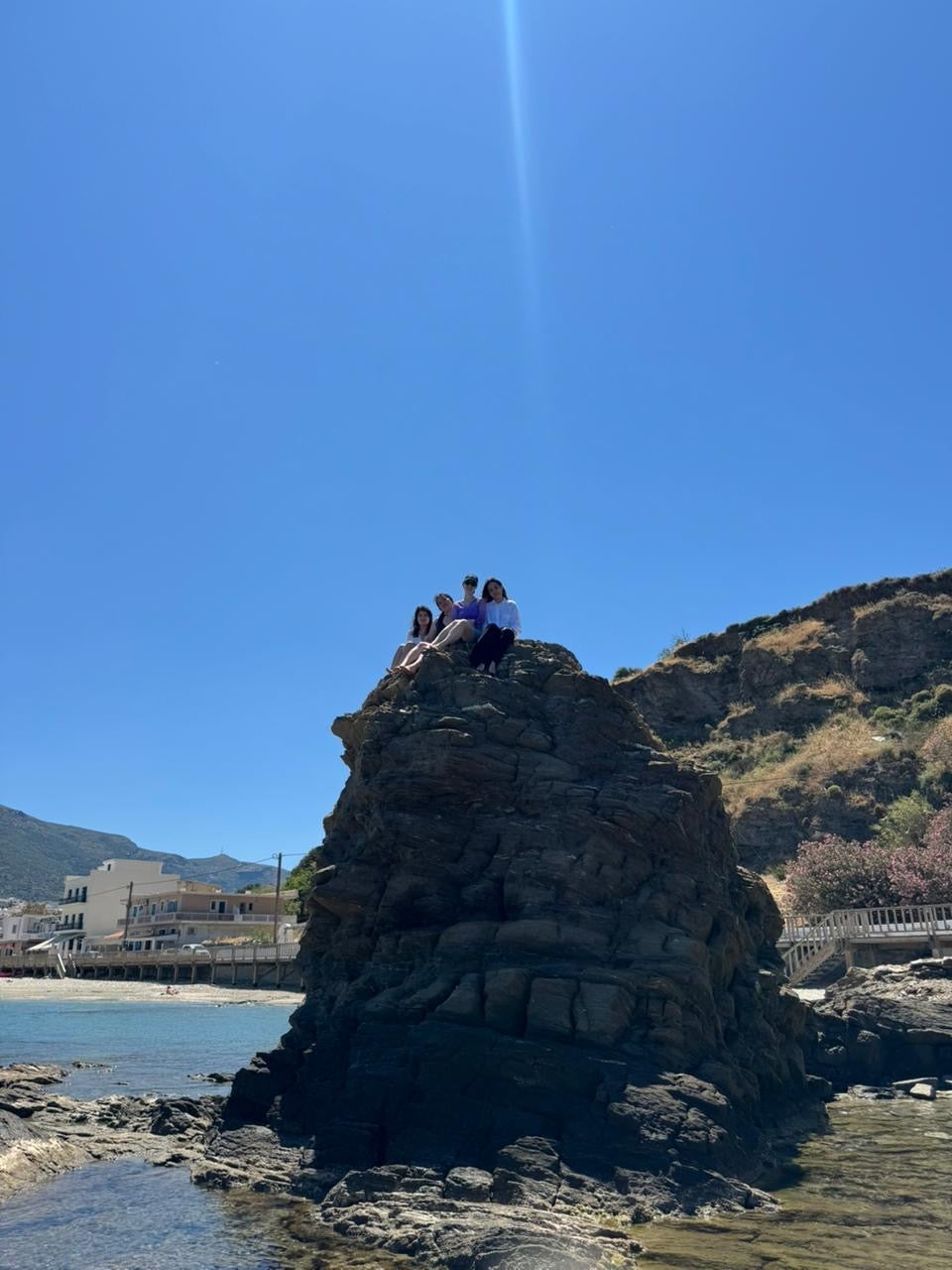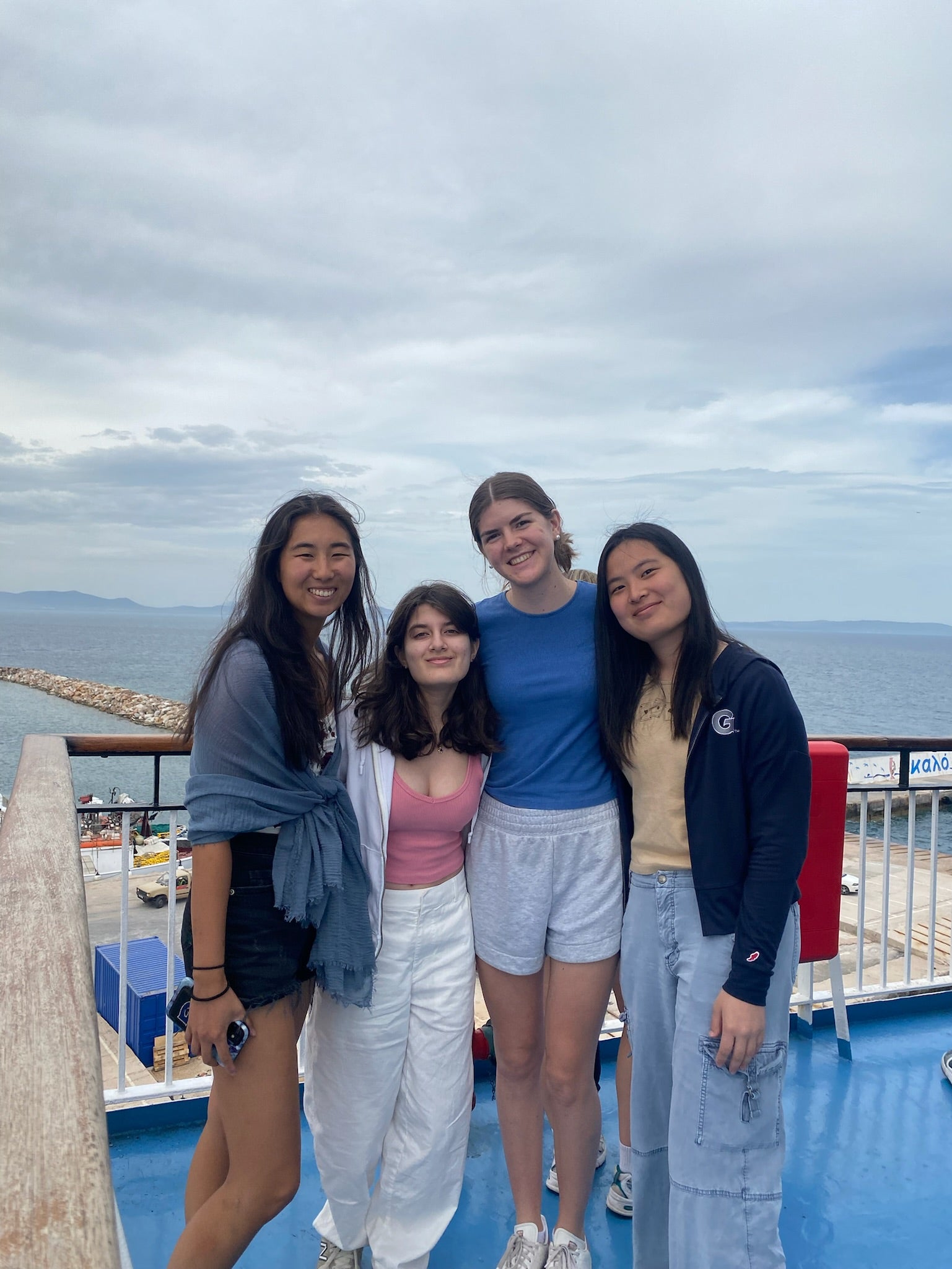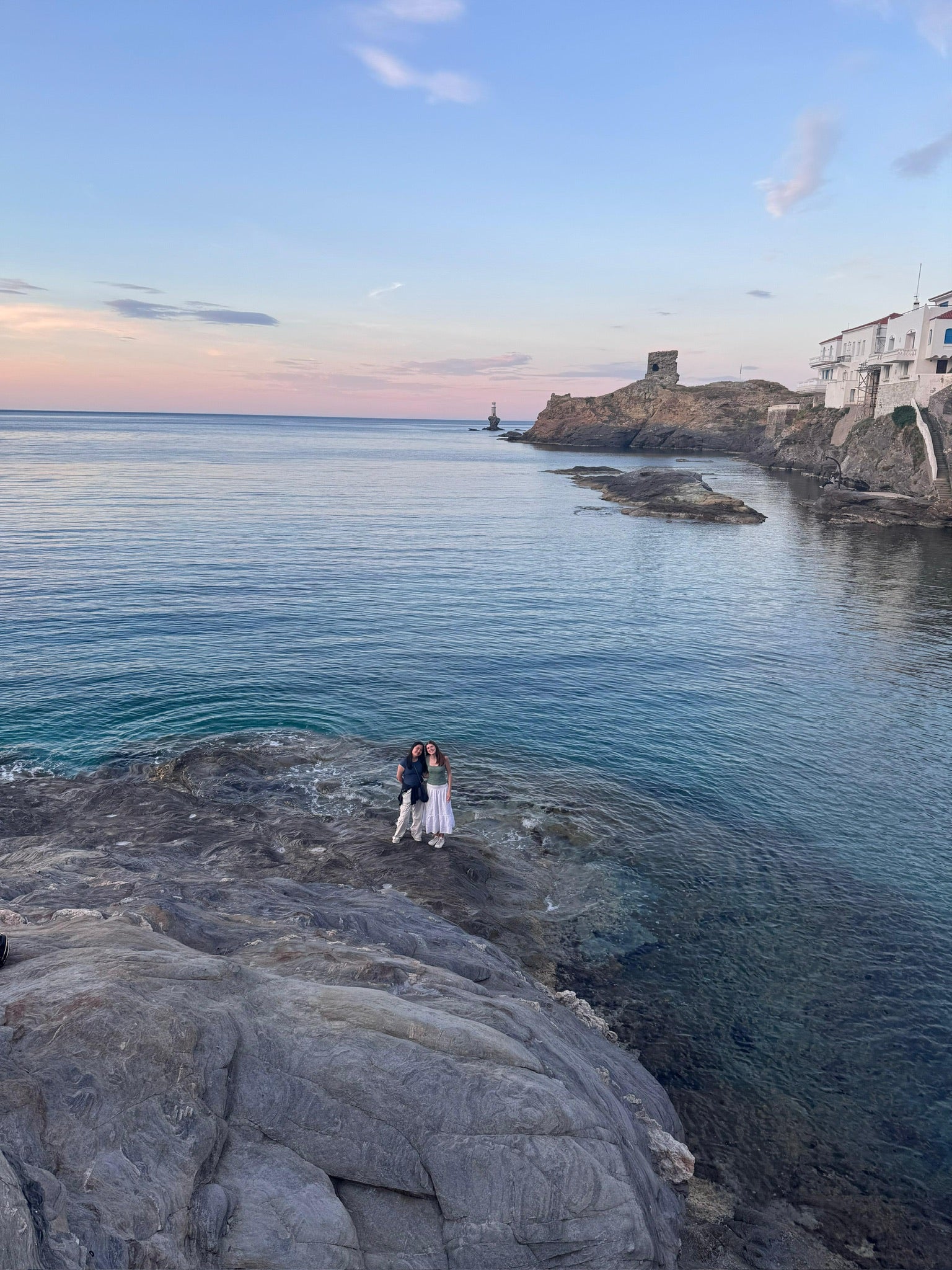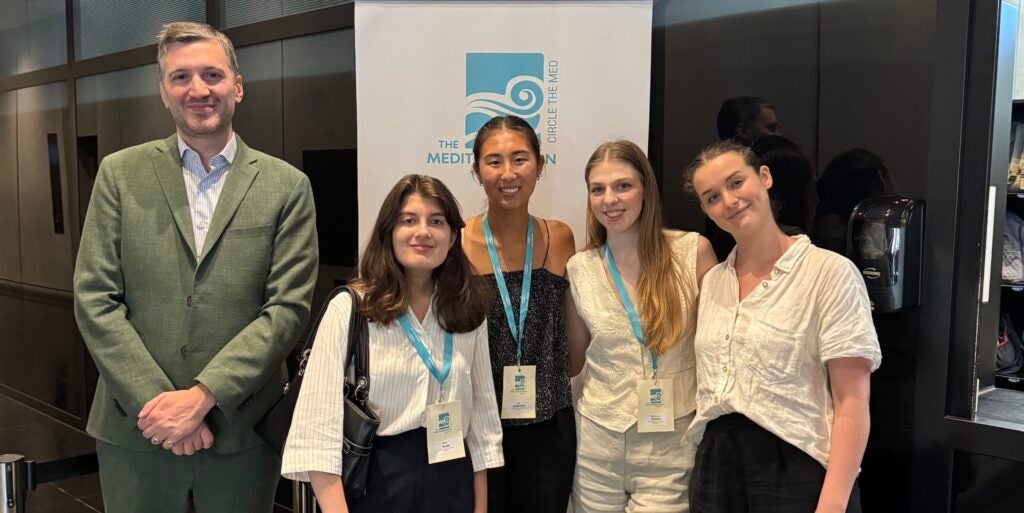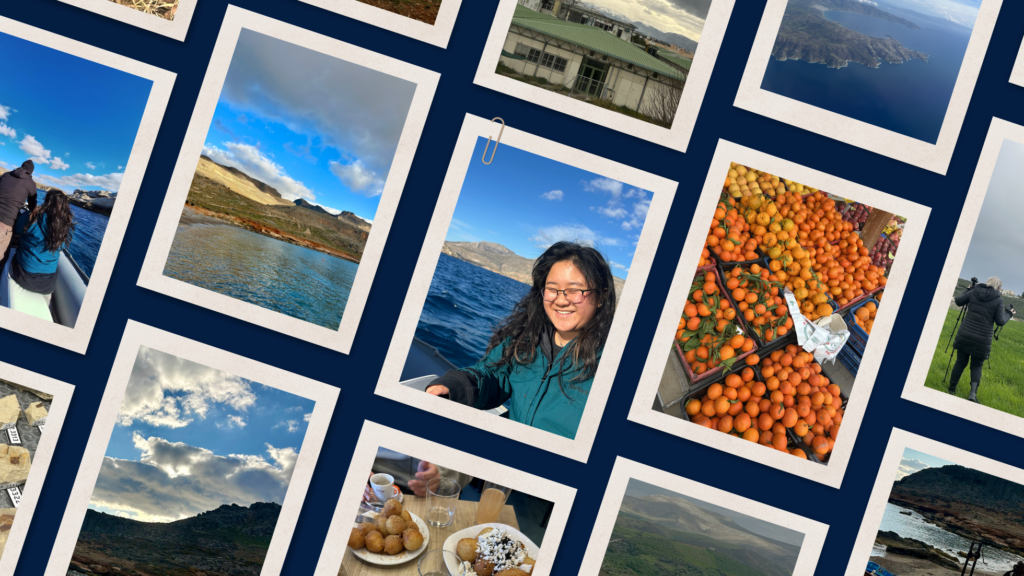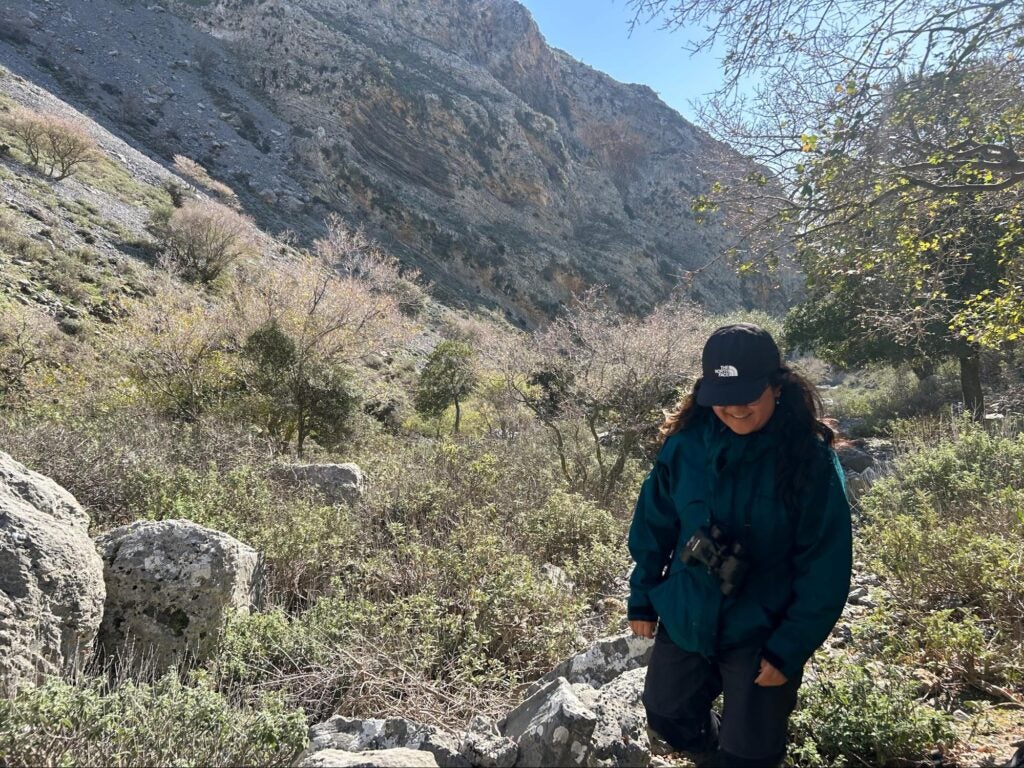Ultimately, I am leaving Greece feeling affirmed in my desire to pursue a career in the environmental sector, knowing that there are still people across the world fighting for our planet and that I can contribute to this impact.
The Intern Dispatches: “Not Just Scrubbing Rocks” with Megan Lu
Megan Lu (C’28) is part of the inaugural class of the BS in Environment & Sustainability , a degree offered by the Earth Commons Institute and the College of Arts & Sciences. She interned with the World Wildlife Fund (WWF) Greece through the Earth Commons Greece, where she contributed to research, policy analysis, and translation projects related to environmental legislation, marine conservation, and outreach campaigns.
When I first told my family that I would be going to Greece for an environmental internship, my brother joked, “Are you just going to be scrubbing rocks?” He was referencing an episode of The Simpsons where, driven by a desire to make a positive impact, Lisa Simpson volunteers for an environmental organization to rescue baby seals just to end up scrubbing rocks. Well, I am happy to report that after two months of working for the World Wildlife Fund Greece, I was not just “scrubbing rocks” but rather gaining meaningful insight into the operations of an environmental NGO, collaborating with people taking real action to protect our planet, and contributing to active campaigns and research.
The Earth Commons International Fellowship program invited five Georgetown students, most of whom are pursuing the new BS in Environment and Sustainability, to travel to Greece for two months to participate in a two-week-long course, “Sensing Marine Ecosystem Health and Climate Impact from Space,” followed by an internship with a local partner organization. The course, jointly taught by Dr. Jesse Meiller from Georgetown University and Dr. Dionysios Raitsos from the National and Kapodistrian University of Athens, offered an exploration into the interface of oceanography and climate science, culminating in a collaborative research project and paper.
End of carousel collection.
After an eventful two weeks of meeting new people, indulging in the local cuisine, engaging in hands-on research, and exploring the ancient history of Athens and the expansive biodiversity and deep blue Mediterranean waters of Andros Island, I was curious as to how “office life” at my internship would compare.
The many plush animals scattered throughout the office should have been my first sign that this would be a fun and fulfilling experience. Under the supervision of Antonis Koutsoukos, Head of Communications and Engagement, and Panagiota Maragou, Head of Conservation, I was warmly welcomed to the office and introduced to the wide-ranging work of WWF Greece. While situated within the international network of the World Wildlife Fund, WWF Greece serves as an independent Greek NGO focused on protecting the rich biodiversity and natural heritage of Greece through science-based and community-centered conservation.
End of carousel collection.
Working alongside Phoebe Opler (CAS ‘27), one of our main tasks was supporting the Communications and Engagement team by synthesizing information from their Greek website into English to help their efforts reach a wider audience. In doing so, I learned about the many initiatives implemented by WWF Greece—from projects rooted in local communities to larger-scale programs across the Mediterranean addressing pressing issues in Greece ranging from the increasing frequency of forest fires to the conservation of Caretta caretta turtles and the establishment of MPAs, like the island of Gyaros.
The energy at the office was particularly high during our first couple of weeks, as the team was preparing to launch their latest outreach campaign centered around cigarette butt litter. WWF Greece performs copious amounts of research and studies critiquing environmental legislation and actively proposing improvements to current policies. We had the unique opportunity to contribute to ongoing research for a policy paper calling for the implementation of a Deposit Return System for cigarette butts. My research into international precedents provided me with a greater understanding of the governance structures of the European Union and the international community.
Learning across oceans and borders, I was drawn to finding commonalities and differences between environmental issues and management at home and abroad.
Megan Lu (C’28)
Learning across oceans and borders, I was drawn to finding commonalities and differences between environmental issues and management at home and abroad. During my first week in Greece, I learned of the ongoing debate surrounding the removal of the wolves in Mount Parnitha National Park. This issue came up again during one of our many lunchtime discussions with our WWF colleagues. I found this debate particularly interesting because, coming from the U.S., I immediately thought of the wolves of Yellowstone National Park, which have served as a classic case study and cautionary tale in my education regarding trophic cascade and the importance of maintaining ecological balance.
Embarking on this journey in Greece proved to be an eye-opening and engaging experience. It was incredibly meaningful to see how vital concepts from my studies in the BS-ES curriculum were translated into real-life projects and programs. I have gained insight into the complex scale of the web of people interacting and collaborating that allow for environmental efforts at the local, national, and international levels. Each and every one of these agents plays a vital role in facilitating effective conservation and action—from the people “scrubbing rocks” to those in the office researching and designing outreach campaigns and others directly engaging in fieldwork.
Ultimately, I am leaving Greece feeling affirmed in my desire to pursue a career in the environmental sector, knowing that there are still people across the world fighting for our planet and that I can contribute to this impact.

